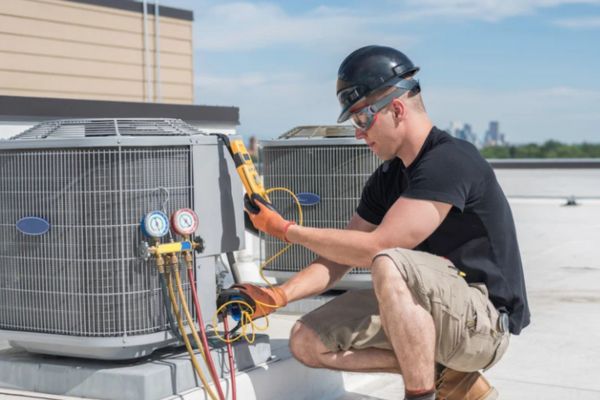Before diving into any home improvement project, it’s crucial to determine whether you need a permit. While small tasks like painting or minor repairs typically don’t require approval, larger projects—especially those involving major systems like HVAC installations—almost always do. Unfortunately, many homeowners overlook this step or are unaware that permits are required, which can lead to costly delays, fines, or complications when selling their home.
One common pitfall is assuming that hiring a contractor automatically takes care of permit requirements. While experienced contractors often handle permits, it’s ultimately the homeowner’s responsibility to ensure they’re in place. Another issue is underestimating the importance of permits for safety and compliance. Projects like HVAC upgrades, electrical work, or structural changes require inspections to confirm they meet local building codes.
To help you navigate the process, here’s a breakdown of common home improvements and whether or not they typically require a permit. By understanding these requirements upfront, you can avoid headaches and ensure your project runs smoothly. And remember, we’re here to guide you through the process and help you make informed decisions every step of the way!
Why HVAC Permits Are Important
Why are HVAC permits so vital? Permits help ensure your new air conditioning or heating system complies with safety standards and energy efficiency guidelines. In addition, having a documented paper trail can be a lifesaver when reselling your home or if issues arise. A permit also ensures that your system meets energy efficiency standards such as the Seasonal Energy Efficiency Ratio (SEER), which is crucial to ensuring that your home is environmentally friendly and cost-efficient.
Steps in the Permit Process
The permit process can seem daunting, but it’s manageable with a reliable contractor by your side. Your contractor should pull the necessary permits and ensure everything is in order before the project begins. Make sure to have a final conversation with your contractor about the permits, and ensure they provide documentation for:
- Project plans
- Proof of permits
- Insurance documents
Additionally, verifying that your contractor is licensed and familiar with local laws is essential. You can use platforms like the Better Business Bureau (BBB) to check their credentials and history.

Before You Start: Final Tips
What happens if you skip the permit? Fines and penalties are just the beginning. You could be subject to hefty fines if a code enforcement officer discovers unpermitted work during an inspection. Even worse, if you plan on selling your home, home inspectors will likely flag any unpermitted work, which could lower your home’s value or delay the sale process.
Moreover, if issues arise from unpermitted work, you might have to hire additional contractors to redo the job—this time with the proper permits in place. Essentially, skipping the permit process can cost you more time and money in the long run.
Getting a permit may seem like a hassle, but it’s vital to a successful home improvement project. Ask friends, neighbors, or trusted sources for advice if you’re unsure how to start. You can also contact your local permitting office for more details. Connect with a reliable, licensed contractor who can guide you through the process and ensure your HVAC system is installed correctly.
Conclusion
Permits ensure compliance with safety and efficiency standards, protect your investment, and prevent costly issues in the future. While the process may seem complex, partnering with a licensed contractor can make it straightforward and stress-free. Don’t skip this step—securing a permit is a smart choice that can save you money, protect your home’s value, and provide peace of mind. Home Star is your top directory for connecting with trusted HVAC professionals who can guide you through installation, repair, and maintenance for your HVAC needs.


